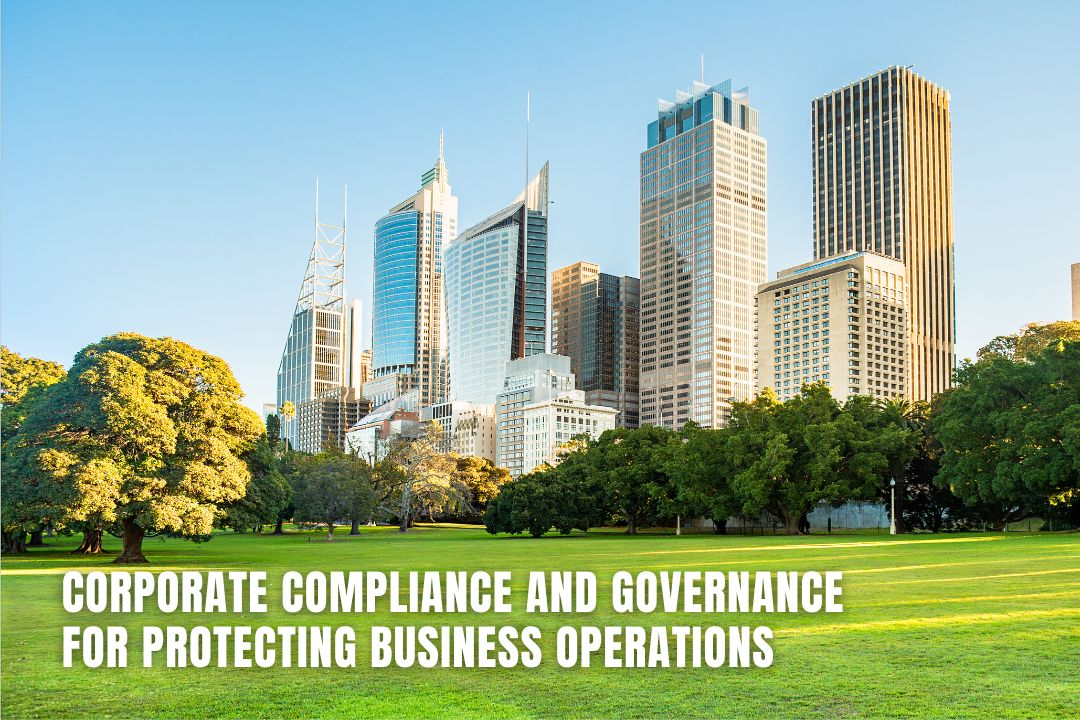
Corporate compliance plays a critical role in keeping businesses in check, abiding by the laws that ensure customer and stakeholder trust is not compromised. With increasing threats like data breaches and financial fraud, sound compliance programs have never been more crucial. In just the third quarter of 2024, over 422 million data records were leaked globally, which has exposed businesses and individuals to formidable threats. In addition, the expense per individual data breach reached $4.45 million in 2023, which caused enormous financial losses to companies. The information makes it clear, without appropriate compliance controls, not only will companies suffer financial loss but also reputational damage that can be hard to recover from.
Corporate compliance is the intentional adherence to legal, ethical, and regulatory standards that guide business practice. It's the foundation of corporate integrity, which assures companies' operating in the framework of specified legislations and sustains trust among different groups of people. Compliance is not just adherence to legislative requirements, but also entails regard for managing risks and corporate governance.
In a transparent and accountable era that forms corporate reputations, compliance is no longer an option but a requirement. It postpones financial, legal, and reputational risk and underpins operational security. Compliance-driven organizations create a culture of accountability, quite simply by reducing corporate malpractice risks.
Regulatory structures that guide corporate compliance differ between jurisdictions but have a unifying purpose: protecting businesses and stakeholders against unethical behavior. Regulators like the Securities and Exchange Commission (SEC), Financial Conduct Authority (FCA), and other regulatory bodies establish strict regulations that organizations need to adhere to in order to remain compliant.
Corporate screening, or one of the essential parts of corporate compliance, is an orderly way to measure business associates, staff members, and investors. Screening programs entailing investigation into financial backgrounds, authentication of legitimacy in their laws, and profiling risks ahead of making binding commitments serve the imperative purposes of guarding against clandestine transactions and malfeasance as a prerequisite in guaranteeing compatibility of the entities with globalized regulations.
Corporate investigations are central to the process of identifying incongruities in an enterprise. These queries reveal fraud schemes, financial misuse, or conduct unbecoming, enabling organizations to manage danger before it strikes. Investigations are not reactive functions but proactive ones that uphold corporate accountability and rule compliance.
Compliance programs need to be regularly revised to keep pace with changing regulations. Non-compliance with industry requirements by companies can lead to heavy fines, legal proceedings, and loss of reputation. Thus, having a robust regulatory framework in place is essential for long-term business viability.
Corporate screening is a complex process aimed at evaluating the integrity of individuals and organizations prior to engagement. It entails a thorough examination of several parameters, such as financial stability, legal record, and reputational status.
The first step of screening involves identity authentication, in which companies verify credentials and documents of prospective partners. This process is meant to certify that companies only deal with credible entities to avoid exposure to criminal elements. Next-generation technologies like artificial intelligence and blockchain have upgraded the effectiveness of screening processes to be more efficient and reliable.
Another essential element of corporate verification is risk assessment, where firms scrutinize the financial health and ethical record of prospective partners. Organizations use due diligence techniques to review business practices, financial statements, and compliance records, protecting themselves from unexpected liabilities. To facilitate this process, businesses can utilize a free partnership agreement template to clearly define the terms and responsibilities of the partnership.
Ongoing monitoring is another crucial aspect of corporate screening. Companies are not only required to screen associates prior to hiring but also to conduct ongoing checks to identify any red flags. As regulatory environments change, regular reviews ensure that companies stay compliant with current mandates.
Corporate due diligence is a critical support pillar for risk management that acts as insurance against financial, operational, and reputational losses. It comprises thorough analyses of potential investments, joint ventures, and business transactions to detect possible risks prior to commitments.
A solid due diligence plan allows organizations to make informed decisions based on fact-based insights instead of assumptions. It gives an overall picture of financial position, legal commitments, and market position, allowing businesses to deal with credible partners.
Due diligence transcends the economic analysis to cover legal and moral aspects. Firms analyze contractual terms, property rights, and compliance histories with the law to remove ambiguity. This thorough scrutiny promotes transparency and avoids conflicts, allowing businesses to run smoothly.
With globalization increasing cross-border collaborations, due diligence has emerged as an important aspect of international business transactions. Businesses have to deal with intricate regulatory structures, making sure they comply with the legislations of various jurisdictions. An overall due diligence strategy reduces exposure to legal breaches, money laundering, and unethical practices, strengthening long-term business resilience.
Corporate compliance is the bedrock upon which ethical, transparent, and legally compliant businesses succeed. Through the application of strong screening policies, regulatory compliance, and due diligence procedures, organizations can shield themselves from financial penalties, litigation, and reputational damage.
With changing regulatory environments, businesses are required to be sensitive to the necessity of making ongoing changes in compliance programs in order to change in accordance with industry norms. Compliance is not only a compliance requirement but is also a competitive edge that builds corporate integrity and stakeholder trust. Businesses focusing on compliance build trust, minimize risk, and set themselves up for long-term success in an open market.